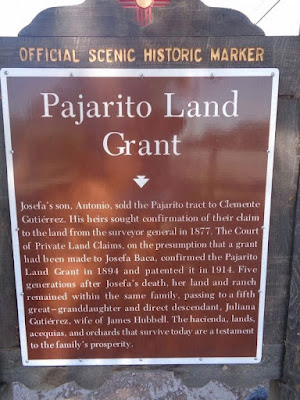One of the main reasons I started doing ancestry research was that I saw a need for diverse family histories to be written for future generations. Not only have women been treated as second-class citizens, but it goes unsaid that women have not been represented well in history. I personally know that my mother is a huge part of my immediate family history. 50% to be exact. Why hasn't that strong feminine presence been reflected in history books? I spent a couple of months with my mother just before she passed away creating a slide show for her memorial service. She picked out the photos and the text to be written. It was an amazing experience and I realized how important it was to have her history told from her perspective. When I retired I had time to take it a step further and create a written account of my family in my blog christinafajardo.blogspot.com
I never enjoyed history class, I thought it was because most of my history teachers were coaches who were only interested in football. Then I realized that not only was the class itself lopsided, history itself was lopsided, largely written by men. Specifically, the men who won the battles, the wars. Men who conquered, took land, cattle and women. The stories of women were white washed and minimalized. Historically women have been used as pawns so I just kept searching until I found some success stories.
I recently came across a story about my 7th great-grandmother, Josefa Baca. She was born in 1682 in Pajarito, New Mexico. Pajarito is just outside of Albuquerque’s city limits. It is situated between the South Valley communities of Los Padillas to the south and Atrisco to the north. The Rio Grande sits to the east and the West Mesa is to the west.
 |
| Josefa Baca Matriarch of Pajarito Land Grant |
Her family arrived with the Oñate colonizers in 1598. Even though she never married she was able to acquired the Pajarito land grant and founded a ranch with 950 head of sheep, horses, cattle, and goats with her livestock brand.
Josefa’s marital status and identity of her 6 children’s father cannot be determined. Perhaps the social status of her parents positioned her to acquire the land. It's interesting that Josefa obtained a land grant given that she lived in a patriarchal society. As an unwed or perhaps widowed woman it would have been hard for her to become a land owner. Although it's also possible that besides her family connections the unknown father influenced her acquisition. Another possibility is that she had certain skills that played into the Spanish legal system that allowed women to own land and property unlike the English/ U.S. colonial system were women did not have this right.
 |
| Pajarito Hacienda and Covered Wagon |
 |
| Pajarito Hacienda |
Regardless of their mother’s marital status and the unknown identity of their father, Josefa’s children acquired the Pajarito land grant and established the village of Pajarito. Josefa became the progenitor of generations of New Mexicans. The Village of Pajarito developed around the Baca family compound. The Sitio de San Ysidro de Pajarito, which included a hacienda and large tract of land south of present-day Albuquerque.
Land grant records show that Josefa Baca left it to her children and other Pajarito residents in her last will and testament signed in 1746. Land grant records show that Josefa Baca acquired the Pajarito land grant. She left it to her children and other Pajarito residents in her last will and testament signed in 1746. In her will, written on October 5, 1746, Josefa lists an inventory of 500 sheep, 100 goats, 2 horses, a musket, 2 bridles, 7 horse collars, a new cart, 4 whips, 2 axes, 3 hoes, three blouses, white skirts, stockings, shoes, a bed with mattress. She owned her own brand. Her estate was valued at 2,822 pesos. Upon her death, she requested that two Indian women who had been her servants be set free and be given ten sheep each. Additionally, an image of Our Lady of Dolores was passed down through at least three generations.
More than 100 years later, the will was presented during litigation in U.S. territorial courts as evidence for her receiving the title of land and their inheritance. The Pajarito Grant can be traced back to 1746 when Spain was the sovereign of present day New Mexico.
Fast forward 100 years to when the United States gained control of present-day New Mexico, and the grants of land made under Spanish control were promised to be upheld by the U.S. government. This is the point where many land grant histories begin their accounts of failed promises and land loss. However, the story of Pajarito is different. The Pajarito Land Grant was ultimately confirmed by the U.S. government, but the land grant’s history is far from being an example of the United States maintaining its promise.



